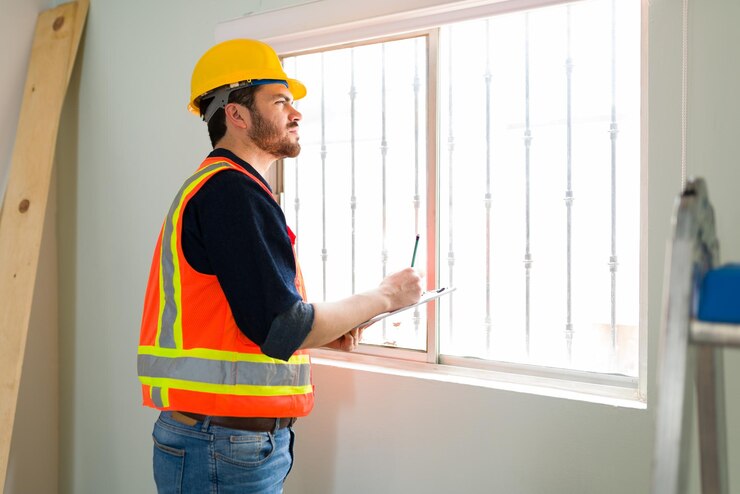How Much Do Window Installers Make?
Deciphering the income of window installers is critical as it reflects various factors including regional influences, level of expertise, and the nature of the job—be it residential or commercial. The amount that these skilled tradespeople earn is not just a matter of their hourly wage; it also encompasses overtime, bonuses, and profit sharing that can significantly affect their total take-home pay. Furthermore, salary variations exist across different regions of the United States, with certain states and cities offering more lucrative opportunities than others due to differences in living costs and demand for services.
Understanding how much window installers make involves examining the various pathways for income growth within the profession. Factors like specialized skills, additional services provided, and the balance between using personal tools versus those supplied by employers all play roles in determining earnings. While entry-level installers might start with a base rate, growth potential exists for those who gain experience, pursue certifications, and take on side jobs to enhance their salary.
Key Takeaways
- Window installer salaries include base pay and additional financial benefits.
- Earnings vary by region and are influenced by factors such as experience and specialization.
- Potential for salary growth exists with skill development and diversified job opportunities.
Overview of Window Installer Salaries
What Is the Average Salary of a Window Installer?
According to national data, window installers in the United States earn an average annual salary of approximately $53,824. However, this amount can fluctuate between $46,512 and $62,321, influenced by factors like experience, location, and level of expertise.
How Does Hourly Rate Translate to Annual Earnings for Window Installers?
The typical hourly rate for window installers is around $19.35. With full-time hours, this can lead to annual earnings that vary from around $29,000 to $68,000, taking into account overtime, bonuses, and additional forms of compensation.
Do Salaries Differ by Industry for Window Installers?
Indeed, they do. Window installers working in the energy industry enjoy the highest average salary at $49,592, while those in the retail industry may experience the lowest with an average of $32,299 annually.
What Are Salary Estimates Based On?
Platforms like Salary.com and Zippia provide detailed salary estimates for window installers. These are derived from a range of data sources including employer-reported figures, governmental reports, and self-reported data from workers in the field.
Salaries may also include additional compensation such as bonuses or profit sharing, and such figures are generally reflected in the estimated total pay reported by resources like Glassdoor.
Factors Affecting Window Installer Income
Window Installer incomes are not uniform across the board; they fluctuate based on various factors such as geographic location, experience, and education. Understanding these factors can provide insight into potential earnings within this field.
What Impact Does Location and Market Demand Have?
Location is a primary determinant of a window installer’s earnings. Certain states and cities offer higher wages due to a greater demand for window installation services. For example:
| Highest Paying States | Average Salary Range |
|---|---|
| New York | $46,512 – $62,321 |
| Massachusetts | Information not available |
| New Jersey | Information not available |
| Virginia | Information not available |
| Alabama | Information not available |
| North Carolina | Information not available |
| Michigan | Information not available |
Furthermore, market demand within cities such as New York City can drive up average wages due to a higher cost of living and construction volume.
How Does Experience and Career Progression Affect Earnings?
Experience level plays a significant role in a window installer’s income. As installers progress from entry-level to mid-career and beyond, their knowledge of complex tasks like carpentry and measurements increases, potentially leading to higher pay.
Are Education and Certifications Important?
While a formal education may not be a strict requirement, having certifications can demonstrate a commitment to the industry and proficiency in using hand tools, power tools, and adhering to workplace safety policies, all of which may lead to increased earnings.
What Role Do Industry Trends Play?
The state of the residential and commercial service industry can influence wages, with thriving sectors typically paying more. Technological advancements and green building trends can also create new opportunities for installers with specific skills.
How Do Skills and Responsibilities Impact Income?
Window installers who possess additional skills such as painting, carpentry skills, or customer service can command higher salaries. Responsibilities can include the ability to make precise measurements, lift up to 50 lbs, and possess excellent time management skills.
Does Employment Type and Work Schedule Shape Earnings?
Window installers may work as contractors, full-time, or part-time employees, with full-time positions often offering more consistent income and sometimes benefits. Contract and part-time jobs may offer higher hourly rates but less job security and fewer benefits.
What Are the Average Earnings for Window Installers by Region?
When examining the earnings for window installers across various regions in the United States, there are notable differences. These variations largely depend on local economic factors, demand for services, and cost of living. Here, we break down the average salaries in select states:
- New York: Window installers in New York can expect to earn on the higher end due to the higher cost of living and concentrated urban areas that might have more demand for window installation services.
- Massachusetts: This state often boasts higher wages for trades such as window installation due to its robust economy and high living costs, particularly in cities like Boston.
- New Jersey: Located close to major metropolitan areas like New York City, window installers here may benefit from the spillover of higher pay rates and demand for construction-related jobs.
- Virginia: With its growing economy, window installers here can see earnings that are competitive and may surpass the national average, particularly in urban centers or affluent counties.
- Alabama: The earnings in Alabama are generally lower when compared to states with a higher cost of living; however, installers can still earn a respectable wage.
- North Carolina: The pay for window installers in North Carolina can vary but tends to be around the national average, reflecting the state’s moderate cost of living and growing housing market.
- Michigan: Window installers in Michigan may experience earnings that align closely with national averages, influenced by the state’s economic recovery and the seasonality of construction work.
The differences in earnings are a reflection of the diverse economic landscapes across these states. They are affected by factors such as local construction booms, housing markets, and regional costs of living.
Which States and Cities Offer the Highest Pay for Window Installers?
When examining the compensation for window installers across the United States, data indicates a variation in pay depending on location. Specifically, certain states and cities stand out as offering higher wages than others for professionals in this field.
Top-Paying States:
- Washington: A leading state for window installer salaries, significantly surpassing the national average.
- Delaware and Virginia: These states are close competitors, with salaries above the national average.
Details on the average salaries in these top states can be found in articles such as “What Is Window Installer Salary by State?” provided by ZipRecruiter.
Top-Paying Cities:
- Bergenfield, New Jersey: Recognized as the city with the highest pay for window installers as of 2024.
To see more about the best cities for window installers, along with the states, explore the findings at “10 Best States For Window Installers In 2024”.
It is important for window installers and those considering this trade to take into account the geographical variations in pay. Compensation can reflect cost of living differences, demand for services, and local economic conditions, making some regions more lucrative for window installers than others.
Comparing Residential and Commercial Window Installation
When exploring the window installation industry, one discovers distinct differences in earnings, job complexity, and workforce requirements between residential and commercial sectors.
What Determines Residential Installation Income?
In the residential sector, installers may expect an average salary of around $53,824 as reported by Salary.com. Typically, income can range from $46,512 to $62,321. These numbers may reflect the varying scale of residential projects, which can range from simple repairs to full-scale remodeling. Installers usually work in small crews or independently, which can impact their earnings based on the volume and type of installations completed.
How Does Commercial Installation Income Compare?
For commercial window installers, the scope of work tends to be more extensive, often involving larger scale installations or high-rise buildings. The salaries can be influenced by the complexity and risks associated with commercial jobs. While specific figures for commercial installations are not provided in the search results, one can infer that the incomes might be higher compared to residential installations considering the increased skill requirements and potential scale of commercial projects.
Are There Differences in Work Scope?
The scope of work for residential and commercial window installers varies significantly. Residential work primarily involves smaller-scale installations, repairs, and remodeling — catered to individual homes or housing units. Commercial installation, on the other hand, encompasses a broader range of activities. It may involve repair works, but also includes installation in larger buildings, possibly with specialized glass that complies with commercial building codes. Installers in the commercial field often work as part of a larger crew and may require additional certifications to handle the higher demands of commercial projects.
Diving into Hourly Wages and Additional Benefits
In the trade of window installation, compensation goes beyond just an hourly figure. It encompasses a range of benefits and incentives which can vary widely based on several factors.
What Constitutes Understanding Hourly Compensation?
Real-time compensation data indicates that hourly wages for window installers typically range from $22 to $30. This remuneration reflects the installer’s hands-on expertise in both residential and commercial settings, as well as their adeptness in diverse remodeling duties.
Are There Additional Benefits and Perks?
Many window installers receive a variety of benefits, particularly if they are employed by a family-owned business that values employee retention and customer satisfaction. Benefits may include health insurance, retirement plans, and paid time off. Some companies offer bonuses or profit sharing to further incentivize their workforce.
How Do Factors of Demand Influence Compensation?
The demand for skilled window installers is influenced by the state of the construction industry and residential and commercial growth. When the industry is thriving, there’s typically more room for negotiable wages and benefits due to the higher demand for their specialized skills in window installation and remodeling.
How Can a Window Installer Increase Their Earnings?
A window installer’s financial potential can progress with experience, specialization, and geographical location. Entry-level installers often start with a salary close to $40,000, which can increase as they gain proficiency and expertise.
- Experience: With each year of experience, they can negotiate higher wages or take on more complex installation jobs that come with higher pay.
- Certification: Acquiring additional certifications can also increase an installer’s marketability and justify higher earnings.
The average salary for window installers can fluctuate significantly from one region to another due to factors such as cost of living and demand for services. In cities where construction is booming, window installers might see higher pay scales.
| Experience Level | Expected Salary Range |
|---|---|
| Entry-level | Around $40,000 |
| Mid-level | $46,512 – $53,824 |
| Experienced | Up to $62,321 or more |
It is important to note that these figures are estimates and actual earnings can differ. Window installers with a strong reputation or those who run their own businesses have potential for greater earnings growth. Understanding market trends and customer needs can enable them to strategically position their services to maximize income.
The Role of Specialized Skills and Services
Specialized skills and services play a crucial role in determining a window installer’s potential income. Mastery in advanced techniques, offering additional services, and delivering exceptional customer service can significantly affect their earnings.
What Are Advanced Installation Techniques?
Window and door installers must often be proficient in handling various materials such as vinyl, fiberglass, and wood windows. Each of these materials requires specific installation techniques that can improve energy efficiency and durability. For instance, a vinyl window installation may involve unique sealing methods to prevent air and water leakage, while wood windows might necessitate a particular type of framing to maintain their integrity. Installers adept at modern, energy-efficient installations are likely to command higher salaries.
Which Additional Installation-related Services Can Be Offered?
In addition to installing windows, professionals might also provide services related to interior wood trim and exterior aluminum trim. Mastery in these areas enables them to offer comprehensive packages. For example, an installer proficient in fitting intricate interior wood trim can enhance the aesthetic appeal of the installation, thereby offering more value. Similarly, expertise in exterior aluminum trim work can protect the window from the elements and contribute to the home’s overall exterior finish, positioning the installer for a premium service fee.
How Does Customer Service and Satisfaction Impact Earnings?
Customer service excellence and ensuring customer satisfaction are pivotal for repeat business and referrals, which are a strong source of income for window installers. Ability to clearly communicate with customers, address their concerns promptly, and customize services to their needs can foster stronger relationships and bolster an installer’s reputation. Positive customer feedback often translates into higher demand for their services, allowing them to command better rates.
Salary Enhancements through Side Jobs
In addition to their regular income, window installers can significantly boost their earnings by exploring various side job opportunities within their industry.
How Can Participation in Subcontracting Contribute to Higher Earnings?
Subcontracting is a common practice where window installers work with companies such as Borans General Construction LLC and R and R Construction Inc to complete specific parts of larger projects. For those looking to supplement their income, engaging in subcontract work can lead to additional jobs on top of regular employment.
What Opportunities Does Freelance and Independent Work Offer?
Window installers may also operate on a freelance basis or start their own business, servicing clients independently. Companies such as Legacy Grown Ltd and the Marvin Replacement Sales Team may require freelance installers for specialized projects. Here, the ability to effectively use measuring tools and ladders, possess reliable transportation, and maintain a diverse set of carpentry skills are essential for success.
Can Extending Skills beyond Window Installation Increase Income Potential?
Branching out into related trades like painting or general carpentry, and offering these services to businesses like EmployBridge or Whitmore Lake residences, can open additional revenue streams. Bickham Services Unlimited LLC, for example, might be in need of skilled laborers with a broader skill set for a variety of home improvement projects.
How Do Tools and Materials Impact Earnings for Window Installers?
The quality and range of tools and materials a window installer possesses can significantly influence their earning potential. Hand tools and power tools are crucial for efficiency and precision in installation tasks. Installers equipped with a comprehensive set of tools can undertake a wider array of projects, commanding higher wages.
Ladders and measuring tools, essential for proper fitting and installation, also contribute to an installer’s efficiency. Their ability to safely and accurately assess and install at various heights directly Correlate to the quality of work and, by extension, their earnings.
The materials used, such as flanged windows, inserts, and interior/exterior trim, also play a critical role. Installers proficient with high-quality materials can charge more due to the enhanced durability and aesthetic appeal they bring to a project.
The use of specialized items like window tape and caulking can further augment an installer’s desirability. Proficiency in sealing and insulation reflects in customer satisfaction and the ability to command higher pay rates.
| Material/Tool | Value Added |
|---|---|
| Hand Tools | Precision & Speed |
| Power Tools | Efficiency |
| Ladders | Accessibility |
| Measuring Tools | Accuracy |
| Flanged Windows | Quality of Install |
| Inserts | Customization |
| Interior/Exterior Trim | Aesthetics |
| Window Tape | Sealing |
| Caulking | Insulation |
In summary, the arsenal of tools and materials at a window installer’s disposal can directly affect their income by enabling them to deliver superior workmanship and handle complex installations.
What Are the Key Safety Measures in Window Installation?
Employers and workers in the window installation industry must adhere to strict safety protocols to minimize workplace accidents and ensure compliance with regulations. Workers often engage with tools and materials that have inherent risks, and proper safety measures are critical.
Personal Protective Equipment (PPE):
- Gloves
- Safety glasses
- Hard hats
- Harnesses when working at heights
Safety Training:
- Regular on-the-job safety training sessions
- Certification courses for specialized equipment
Workplace Safety Policies: Employers are responsible for establishing comprehensive safety policies, which include guidelines for:
- Routine equipment inspections
- Safe handling and transportation of glass
- Procedures for working in challenging environments
Measurements and Compliance:
- Strict adherence to measurement specifications to ensure stability and fit
- Compliance with local building codes and industry standards
Emergency Response:
- Clear emergency response plans
- First aid training for all workers
Frequently Asked Questions
When exploring careers or hiring professionals, understanding compensation is crucial. This section addresses common queries regarding the earnings of window installers in the United States.
What is the average annual income for window installers in the United States?
Window installers in the United States have an average salary of $53,824, with the range typically between $46,512 and $62,321.
What factors influence a window installer’s salary?
A window installer’s salary can be affected by several factors, including education, certifications, additional skills, and the number of years they have spent in their profession.
How does experience affect the earnings of window installers?
As with many professions, increased experience often leads to higher pay for window installers, as they can perform installations faster and with higher quality, possibly taking on more complex projects.
Can window installer salaries vary based on location within the United States?
Salaries for window installers can indeed vary significantly by location, reflecting the cost of living and demand for services in different regions across the United States.
Are there financial benefits in specializing within the window installation field?
Specialization in areas such as high-efficiency or custom window installations can lead to financial benefits for window installers, distinguishing them from generalists and potentially commanding higher rates.
What are the prospects for income growth for professional window installers?
Income growth prospects for professional window installers look promising, as experienced installers may progress to supervisory roles or start their own businesses, increasing their potential earnings.






